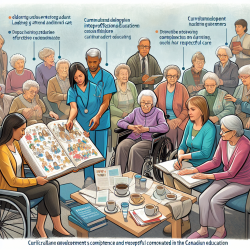Introduction
In the quest to enhance mental health services for adolescents in low- and middle-income countries (LMICs), a recent study titled "Validation of brief screening instruments for internalizing and externalizing disorders in Mozambican adolescents" has provided valuable insights. This research highlights the importance of using validated tools to identify mental health issues in Mozambican adolescents, a demographic that often lacks access to specialized care. This blog will explore the study's findings and discuss how practitioners can implement these tools to improve mental health outcomes for adolescents.
The Study at a Glance
The study focused on adapting and validating three screening instruments for internalizing and externalizing disorders among adolescents in Mozambique: the Patient Health Questionnaire Adolescent (PHQ-A), the Generalized Anxiety Disorder 7 (GAD-7), and the Strengths and Difficulties Questionnaire (SDQ). These tools were chosen due to their demonstrated validity in other settings and their potential to be used by non-specialists in resource-limited environments.
Key Findings
- Internal Consistency and Reliability: The PHQ-A, GAD-7, and full SDQ showed good internal consistency and test-retest reliability, making them reliable tools for assessing mental health problems.
- Sensitivity and Specificity: All instruments demonstrated good sensitivity and specificity, with optimal cutoff scores identified for effective screening.
- Adaptation for Local Context: Minimal changes were required to adapt the instruments for Mozambican adolescents, ensuring cultural relevance and comprehension.
Practical Implications for Practitioners
Practitioners working in LMICs can leverage these validated tools to enhance mental health screening and intervention efforts. Here are some practical steps to consider:
- Implement Screening Programs: Use the PHQ-A, GAD-7, and SDQ in schools and community settings to identify adolescents in need of mental health support.
- Train Non-Specialists: Equip teachers and community health workers with the skills to administer these tools, facilitating early detection and referral.
- Customize Interventions: Tailor interventions based on screening results, focusing on the specific needs of adolescents with internalizing or externalizing disorders.
Encouraging Further Research
While the study provides a solid foundation, further research is needed to explore the performance of these tools in rural and non-Portuguese-speaking Mozambican adolescents. Additionally, examining the impact of these screening tools on treatment outcomes will provide valuable insights for refining mental health services in LMICs.
Conclusion
The validation of these screening instruments marks a significant step forward in addressing the mental health needs of Mozambican adolescents. By implementing these tools, practitioners can improve early detection and intervention, ultimately enhancing mental health outcomes for this vulnerable population.
To read the original research paper, please follow this link: Validation of brief screening instruments for internalizing and externalizing disorders in Mozambican adolescents.










